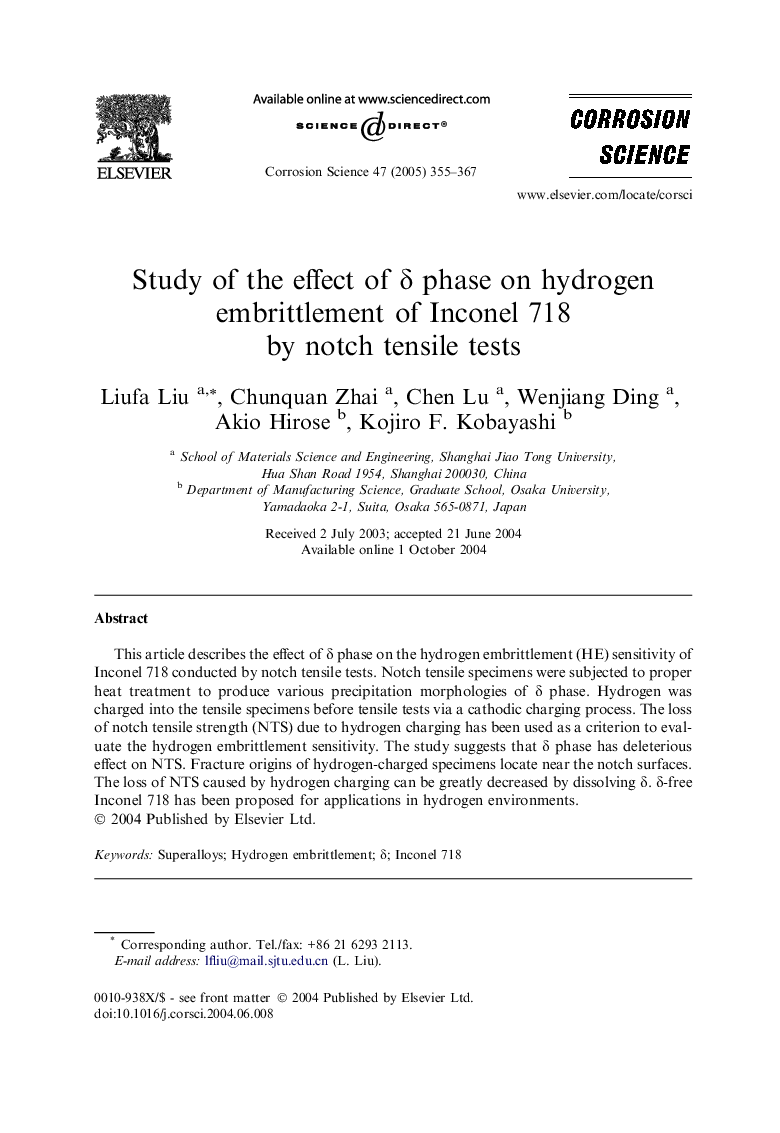| Article ID | Journal | Published Year | Pages | File Type |
|---|---|---|---|---|
| 10628554 | Corrosion Science | 2005 | 13 Pages |
Abstract
This article describes the effect of δ phase on the hydrogen embrittlement (HE) sensitivity of Inconel 718 conducted by notch tensile tests. Notch tensile specimens were subjected to proper heat treatment to produce various precipitation morphologies of δ phase. Hydrogen was charged into the tensile specimens before tensile tests via a cathodic charging process. The loss of notch tensile strength (NTS) due to hydrogen charging has been used as a criterion to evaluate the hydrogen embrittlement sensitivity. The study suggests that δ phase has deleterious effect on NTS. Fracture origins of hydrogen-charged specimens locate near the notch surfaces. The loss of NTS caused by hydrogen charging can be greatly decreased by dissolving δ. δ-free Inconel 718 has been proposed for applications in hydrogen environments.
Related Topics
Physical Sciences and Engineering
Materials Science
Ceramics and Composites
Authors
Liufa Liu, Chunquan Zhai, Chen Lu, Wenjiang Ding, Akio Hirose, Kojiro F. Kobayashi,
